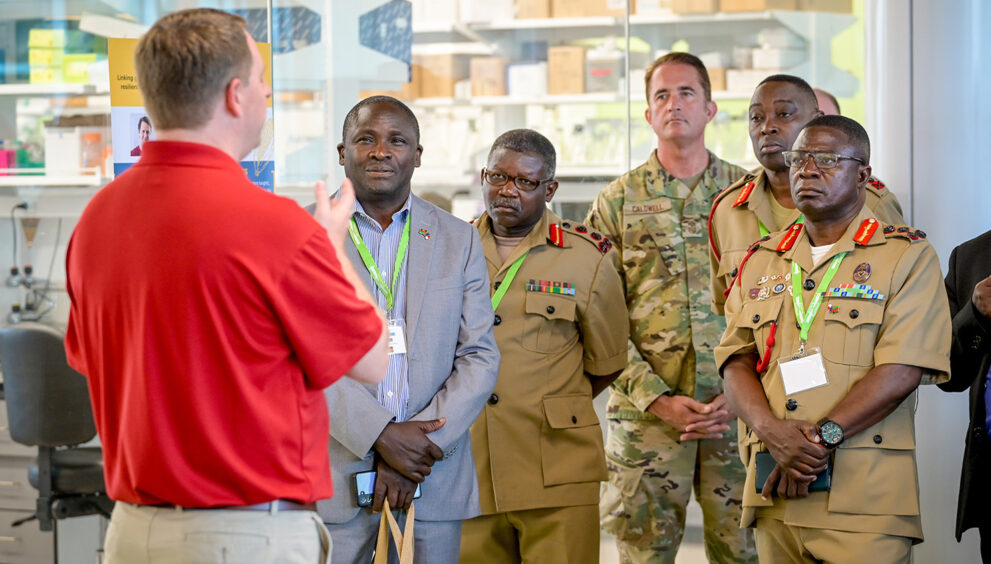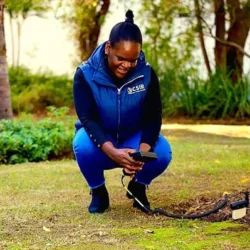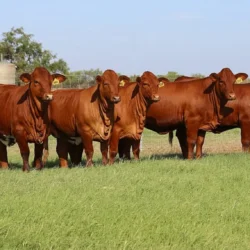NC State University was founded in 1889 with a clear mission. As one of the nation’s first land-grant universities, it was tasked with teaching agriculture and mechanical arts.
From the beginning, the mission included disseminating information from campus to the people of the state. In 1914, the Smith-Lever Act established a national Cooperative Extension System, formalizing the arrangement and ensuring vital agricultural information and education would reach farmers and rural communities.
The system has been honed and expanded over the last 110 years. Today, cutting-edge research from NC State’s campus in Raleigh and 22 research stations and field labs across North Carolina helps ensure prosperity for farmers and a stable food supply for the people of the state. As part of the nation’s second-largest Extension system, more than 1,000 NC State experts work on campus and out of Extension centers in all 100 counties plus with the Eastern Band of Cherokee Indians.
What is well established in North Carolina can be a foreign concept in developing nations that struggle with food insecurity. But in Malawi and Zambia, that could soon change thanks to a partnership between NC State and the two countries.
Representatives from the two Southern African nations were in Raleigh in late July to formalize an agreement that includes help with establishing and improving their own Extension systems.
“We have defined broad areas where we have issues,” said Readwell Musopole, deputy director of planning in Malawi’s ministry of agriculture. “We have huge challenges, including Extension adoption at the ground level.”
It is also a pressing need in Zambia, according to Chizumba Shepande, the country’s director of agriculture.
“Our biggest weakness is the Extension system,” Shepande said. “That is an area where I would like to see us improve. That is an area I would like to see if we can learn.”
NC State Extension Director Rich Bonanno has been active in facilitating relationships between the university and the two countries. He visited Malawi and Zambia in April to learn more about the interaction between educational institutions and producers.
“Their farmers don’t have that connection with the universities. They have no delivery system,” Bonanno said. “Some of these universities are very good. But if you ask the researchers, ‘How do you get your work out to the growers?’, they say, ‘We don’t have a way to do that.’ They have a tremendous need for the network of knowledge that Extension offers. This opens the door for us to help make a significant impact.”

From Defense to Agriculture
The collaboration stems from a program inaugurated about 30 years ago. The State Partnership Program (SPP) is an initiative of the U.S. Department of Defense that matches state National Guard units with countries around the world. North Carolina was affiliated with Moldova in 1999, Botswana in the early 2010s, and more recently Malawi and Zambia.
The primary purpose of SPP is security cooperation. National Guard units help train a country’s military, which then becomes a deterrent to aggression in that part of the world. The program also fosters people-to-people ties, which often go beyond defense.
“It’s a very different kind of relationship,” Bonanno said. “It was primarily based on defense, but in doing that it opens up other opportunities. When we were in Malawi, as an example, their cabinet members wanted to talk about how to move agriculture forward. For a lot of these countries just feeding the population is a big issue. Extension is a really, really important part of this. A lot of countries tell us that’s their missing piece. They look at the Extension system we’ve created in this country, which by design connects the needs of agricultural producers to the university, and ask how they can implement it.”
Officials from Malawi and Zambia’s ministries of defense and agriculture visited NC State July 25. They met with representatives from the College of Agriculture and Life Sciences and NC State Extension, including CALS Dean Garey Fox; Bonanno; Associate Dean Steve Lommel; David Monks, associate director of the N.C. Agricultural Research Service in CALS; and Extension specialist Rick Brandenburg, who has worked in Africa for years.
The U.S. contingent also included representatives from the N.C. National Guard and the N.C. Department of Agriculture and Consumer Services.
“In all my years of doing international work, this is a very unique opportunity,” Brandenburg said. “This is Malawi- and Zambia-led with NC State being a partner to help support this movement. It has a chance to be much more successful than your typical international project because it is a two-way street. This could be an outstanding model. It has the potential to be impactful in countries that could really use some support. It will be sustainable if we do it well.”


The African delegation spent three days in North Carolina. Health care was the focus at the UNC Institute for Global Health and Infectious Diseases on the first day. The second day included a visit to the dairy research farm at North Carolina Agricultural and Technical State University, which included a presentation from the Extension center in Guilford County.
At NC State, they toured the research facilities on Lake Wheeler Road, including the turfgrass lab and livestock farm. The group then learned about the cutting-edge research taking place within the North Carolina Plant Sciences Initiative (N.C. PSI) on Centennial Campus.
After departing campus, the delegations participated in a flag exchange ceremony at the North Carolina Museum of History in Raleigh and a reception at the Governor’s Mansion.
They departed North Carolina encouraged by the relationships and confident of finding solutions to their problems.
“As minister of agriculture representing the biggest contributor to the GDP in our country, we look forward to a very productive collaboration,” Malawi’s Musopole said. “We have challenges back home that are constraining agriculture development. We understand that North Carolina has gone through those stages and we want to take advantage of that experience and get support on how we can improve agriculture productivity and the industry generally.”
Extending Solutions from North Carolina to Southern Africa
Developing a robust Extension system will enhance the ability to meet those challenges.
“With every country that we talk to, it’s really about how they can feed their population, how they can be more agriculturally self-sufficient, and how an Extension system can help them make that happen,” Bonanno said. “We’re trying to understand where they want to go and then give them ideas or examples of how we’ve been successful or how they might adopt what we are doing.”
A key to the success of the system in North Carolina is dialogue between farmers, Extension agents and the university. Farmers express their needs and challenges, which then guides research programs.
“If you are going to make progress in solving problems, you’ve got to inform that research by knowing the needs of the farmers you’re trying to serve,” Bonanno said. “And then you have to have a mechanism for delivering solutions back to them. Coordination between their universities and an Extension system are vitally important in being able to elevate their agriculture to where they want it to be.”
Bonanno also provided information on other ways NC State Extension helps the state’s producers, including moving toward agritourism.
“We’re giving them some ideas about how to move their countries forward,” he said.
Brandenburg, who has worked extensively in Africa, knows how much an effective Extension system can benefit the two countries.
“The land-grant university has been one of America’s success stories and why our agriculture is where it is,” he said. “And when you see their struggles and their farmers still using basic indigenous knowledge that was passed down from their fathers and grandfathers, it is a challenge. We’re going to have to come up with cost-efficient ways of doing it. But they are really impressed when they look at our return on investment of 27-to-1. That says this is something worth investing in, so they’ve given indications they’re going to invest in Extension.”
Musopole said about 80% of the people in Malawi engage in farming, but most of them are subsistence growers.
“Literally everyone does some sort of farming. But those who are dependent on agriculture, it’s over 80%,” he said. “So it’s life. The challenges need to be addressed to push us into the right place.”
The country is trying to transform agriculture with the adoption of mega farms, which would be centers of large-scale production and serve as an anchor for other farmers by attracting private markets.

NC State Extension experts can help with issues such as soil quality on the mega farms, and with extending the knowledge from the large operations to smaller growers.
“That is one of the strong areas that we want to emphasize,” Musopole said. “We need to be producing not just for our consumption but for the export market. We have to grow the private sector. We look forward to working with NC State on these challenges.”
In Zambia, about 70% of the population is involved in some sort of farming, Shepande said.
“Almost 90% of agriculture production is by small-scale farmers,” he said. “It is one of the biggest contributors to the GDP, second only to mining.”
The most important food crop is corn, followed by soybeans. Cash crops are tobacco, cotton and sunflowers.
“We are trying to get into other crops like wheat, but wheat mainly is grown by commercial farmers under irrigation, but not many small-scale farmers have got the capacity to do irrigated agriculture,” Shepande said.

A Growing Partnership
Zambia has a nascent Extension system, but it is not very efficient with just one agent for every 1,500 farmers. During the visit to NC State, Shepande learned of a cost-effective way to make the network more viable.
“There is one recommendation that we can go the digital way using E-Extension whereby Extension officers equipped with tablets or phones can communicate with their farmers,” he said. “That will help to improve the interaction between Extension officers and farmers on the ground.”
Shepande also received recommendations on drip irrigation capacity to combat drought and detailed soil mapping to inform fertilizer recommendations.
“I’m quite impressed. We have learned quite a lot,” he said.
The two nations also are turning to NC State for assistance in transitioning farmers from a tobacco-based economy to a more diverse agricultural system. Brandenburg is coming out of retirement to lead the effort.
“That resonates with us because we did the same thing over the last 30 years, going from tobacco-based to where we now have the third most diverse agriculture in the United States,” he said. “We’re looking for ways to take NC State’s experience of transitioning from tobacco and share our expertise in crops, soils and climate.”
The initial conversations took place five years ago, but were put on hold during Covid restrictions. The project received an infusion of oxygen when NC State officially entered into the agreement with the two countries.
Brandenburg expects to take several groups of NC State researchers, Extension experts and students to Malawi over the next year.
“We have almost 40 faculty at NC State who have said they want to work on the project,” Brandenburg said. “We have a really broad spectrum of expertise. I am going to Malawi with a small team of about six to eight faculty the first full week of September to meet with Readwell and his colleagues from the Ministry of Agriculture and from various universities.”
Another goal of the partnership is to receive reciprocal visits from faculty and students in Malawi and Zambia.
“I hope that we’ll see faculty exchanges going both directions, that we’ll be able to train some of their students, and some of our students will be able to spend time there so we can develop collaborative research programs that address global issues with agriculture,” Brandenburg said. “The overarching goal is for this to be a real partnership of substance, that this is a long-term commitment where we really can focus on addressing what their problems are.”




